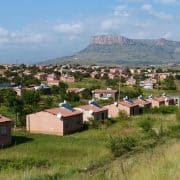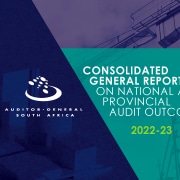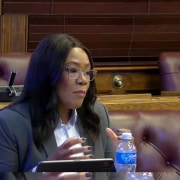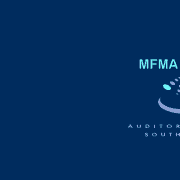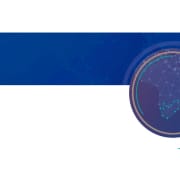|
Getting your Trinity Audio player ready...
|
The Durban International Convention Centre (ICC) on 19 September hosted a summit titled Good Governance and Accountability in a Disrupted Economy, which focused on catalysing forward-moving processes for accountability and transparency in governance in South Africa.
Guest speakers included Prof Mervyn King, author of the four acclaimed King reports on good governance, Auditor-General Tsakani Maluleke, and Nkosazana Dlamini-Zuma, minister of Cooperative Governance and Traditional Affairs.
“One cannot place a price tag on good governance. After the pandemic, it became clear that good governance is a survival kit to save human lives, protect national economies and ensure social order,” said Lindiwe Rakharebe, CEO of the Durban ICC, commenting before the event.
The one-day event aimed to take a deeper look at why ethics are important in good governance, and discuss how to improve governance and accountability. It brought together leaders from the corporate sector, local municipalities, state-owned enterprises, academia, civil society, and government, to participate in discussions under the themes of:
- Improving governance and accountability in government;
- Good deeds in good governance;
- Governance and accountability in a disrupted economy;
- Making governance principles a culture.
The critical need for good governance became starkly apparent during the early days of the Covid-19 pandemic, when public servants and private businessmen willingly and knowingly took part in widespread corruption as they competed for the biggest personal gain under temporarily relaxed procurement rules. The economic and social repercussions are seen and felt around the world to this day.
“With better governance and compliance with legislation, processes and policies, we can support our collective desire to ensure that public institutions and officials deliver a better quality of life for all our people,” said Malukeke, speaking under the topic of How compliance can enhance a people–centric culture of governance.
“Now more than ever, the need for strong governance, capable institutions and competent public officials that deliver on the hopes and aspirations of citizens, is unanimous and undisputed.”
Critical to professionalise the public service
She noted that South Africa’s National Development Plan (NDP) envisions a country with a “developmental, capable and ethical state that treats citizens with dignity,” and further recognises the need for “steps by the state to professionalise the public service, strengthen accountability and improve coordination…”
While it is true that professionalisation of the public service features in government’s plans for the future, the execution of this concept has proved troublesome and slow. The establishment of the National School of Government, and initiatives such as the Public Service Charter and National Batho Pele Excellence Awards are a few of the elements meant to inculcate a sense of pride in public servants and motivate them to strive for high levels of good governance.
Based on the evidence heard over more than three years of public hearings, Chief Justice Raymond Zondo targeted the public procurement sector specifically in the recommendations published at the end of the state capture commission’s sittings – he advocated for urgent reform and the establishment of a professional body to which all public servants in procurement would account.
“Such professional body will fix the qualifications and the necessary training and experience necessary for membership of the profession. Such training and qualification to include high standards of integrity and a commitment to resist mismanagement, waste and corruption,” Zondo said.
South Africa’s Constitution, in fact, establishes the Public Service Commission (PSC) as a body taking responsibility for professionalism in the public service. The PSC, however – the very custodian of good governance – is itself struggling with issues of unethical behaviour, victimisation of whistle-blowers, and secret, unauthorised monitoring of staff communications.
So 28 years since we started our democratic journey – an entire generation ago – South Africa is nowhere near the levels of good governance we need to move the country forward at a desirable pace.
Good governance tied to human rights
“The true test of ‘good’ governance is the degree to which it delivers on the promise of human rights: civil, cultural, economic, political and social rights,” said Maluleke.
The key question in this regard is “whether institutions of governance effectively guarantee the right to health, adequate housing, sufficient food, quality education, justice and personal security.”
Many South African residents will answer in the negative – their rights are guaranteed only on paper.
Poor audit outcomes linked to weak governance
The Office of the Auditor-General has year in and year out showed that the largely poor audit outcomes of institutions, both at provincial and municipal level, are strongly linked to weak governance, instability at key management and leadership levels, weak internal controls, and ineffective consequence management. As a result, South Africa is getting no closer to its NDP aspirations of a developmental agenda that is driven by a capable state, and underpinned by strong and resilient public institutions.
“These features inevitably lead to poor performance and service delivery as well as weakened financial health and overall capability of public institutions,” said Maluleke.
Poor audit outcomes, she said, are caused in large part by poor conduct on the part of those who are elected and appointed to serve as stewards over public institutions. “All too often, we find that these leaders do not invest building public institutions with a culture of performance, accountability, transparency, and integrity.”
Where there is good governance, she said, there are strong controls that effectively prevent, detect, and correct problems.
State-owned entities (SOEs), envisioned in the NDP as drivers of economic development, have proved to be just the opposite – for instance, it is widely agreed that power utility Eskom is one of the greatest burdens on the South African economy, and has been for years. Other SOEs are in similar dire straits.
But SOEs are the very institutions that have the greatest impact on the service delivery needs of citizens and the financial health of government, Maluleke said. Their audit outcomes, therefore, are a good indicator of their ability to fully discharge their mandate.
Those audit outcomes, Maluleke continued, tend to be “dismal”. There were “a number of late/non-submissions of financial statements for audit, and poor audit outcomes on each of our three audit areas: credibility of financial statements, usefulness and reliability of performance reports and on compliance matters, especially on procurement.”
To strengthen the economy, the governance and accountability of institutions must be strengthened first. This will create value and credibility for the government and the country, and will boost South Africa’s investment status. At home, small and large businesses will be amply supported in doing what they do best – driving the economic growth and development that is essential for addressing poverty and creating jobs.
“It is clear that there is much work ahead of us if we are to improve the governance mechanisms in public institutions and more importantly, if we are to deliver on the expectations and the needs of our citizens,” Maluleke said.
“This is crucial to protecting our democracy, social cohesion and our public institutions.”

